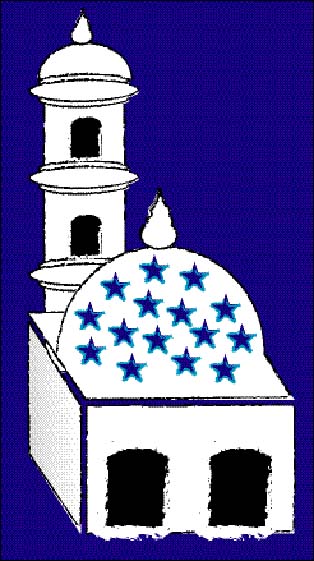
Abdul Muqit Chowdhury :
One of the fundamentals of Islamic economy is the payment of Jakat. Jakat means’ to purify’ or ‘cleanse’. It has also the meaning ‘to increase’. It purifies and sanctifies wealth. It is a compulsory religious obligation.
This obligation is a way to narrow the gap between the rich and the poor with the target to eventually eliminate poverty.
Jakat ensures economic security in the society and solvency of the needy people through fair distribution of the wealth.
Jakat is to be paid at the rate of 2.50 per cent on savings once in a year. It is payable on our produces while it is more than 30 maunds and on our gold and silver, when it is more than 7.50 tollas and 52.50 tollas respectively and also on other assets.
The following are the categories of acquired property subject to Jakat : gold and silver, jewellery, cash, bank savings, cows, bulls, goats, buffaloes, sheep, camels, articles of merchandise and produces of the earth.
The Holy Quran reveals on Prayer and Jakat: ” … And establish regular Prayer/ And give regular Charity/ And loan to God- a Beautiful loan.” (Sura Muzzammil: Ayat 20, The Holy Quran Translation and Commentary by A. Yusuf Ali). There are other verses on Jakat, Sunnah of Rasulullah (Sm) echoes the importance of this socio-economic obligation. Its obligatory character distinguishes itself from voluntary charity.
The Holy Quran reveals the heads to whom the Jakat is due : “Alms are of the poor/ And the needy/ And those /Employed to administer (the funds); /For those whose hearts /Have been (recently) reconciled /(To Truth); for those in bondage /And in debt; in the cause /Of God and for the wayfarer ; /(Thus is it) ordained by God/ And God is full of knowledge /And wisdom.” (Sura Tawba : Ayat 60, Do).
As Jakat (legal alms) is an annual obligation, it is preferable to pay the due in the Holy month of Ramzan, when the merit of an obligatory virtue is multiplied by 70 times. In addition to that, the preference of this best period has the basis of the Tradition of Rasulullah (Sm). He preferred more and more charitable activities in this month.
Let Allah help us to create a society based on equity through Jakat. Jakat is a due of the poor. It should be so managed that by using the money as seed capital the poor can come out of poverty trap. It should be state organised according to the Holy Quran and Sunnah.
One of the fundamentals of Islamic economy is the payment of Jakat. Jakat means’ to purify’ or ‘cleanse’. It has also the meaning ‘to increase’. It purifies and sanctifies wealth. It is a compulsory religious obligation.
This obligation is a way to narrow the gap between the rich and the poor with the target to eventually eliminate poverty.
Jakat ensures economic security in the society and solvency of the needy people through fair distribution of the wealth.
Jakat is to be paid at the rate of 2.50 per cent on savings once in a year. It is payable on our produces while it is more than 30 maunds and on our gold and silver, when it is more than 7.50 tollas and 52.50 tollas respectively and also on other assets.
The following are the categories of acquired property subject to Jakat : gold and silver, jewellery, cash, bank savings, cows, bulls, goats, buffaloes, sheep, camels, articles of merchandise and produces of the earth.
The Holy Quran reveals on Prayer and Jakat: ” … And establish regular Prayer/ And give regular Charity/ And loan to God- a Beautiful loan.” (Sura Muzzammil: Ayat 20, The Holy Quran Translation and Commentary by A. Yusuf Ali). There are other verses on Jakat, Sunnah of Rasulullah (Sm) echoes the importance of this socio-economic obligation. Its obligatory character distinguishes itself from voluntary charity.
The Holy Quran reveals the heads to whom the Jakat is due : “Alms are of the poor/ And the needy/ And those /Employed to administer (the funds); /For those whose hearts /Have been (recently) reconciled /(To Truth); for those in bondage /And in debt; in the cause /Of God and for the wayfarer ; /(Thus is it) ordained by God/ And God is full of knowledge /And wisdom.” (Sura Tawba : Ayat 60, Do).
As Jakat (legal alms) is an annual obligation, it is preferable to pay the due in the Holy month of Ramzan, when the merit of an obligatory virtue is multiplied by 70 times. In addition to that, the preference of this best period has the basis of the Tradition of Rasulullah (Sm). He preferred more and more charitable activities in this month.
Let Allah help us to create a society based on equity through Jakat. Jakat is a due of the poor. It should be so managed that by using the money as seed capital the poor can come out of poverty trap. It should be state organised according to the Holy Quran and Sunnah.

